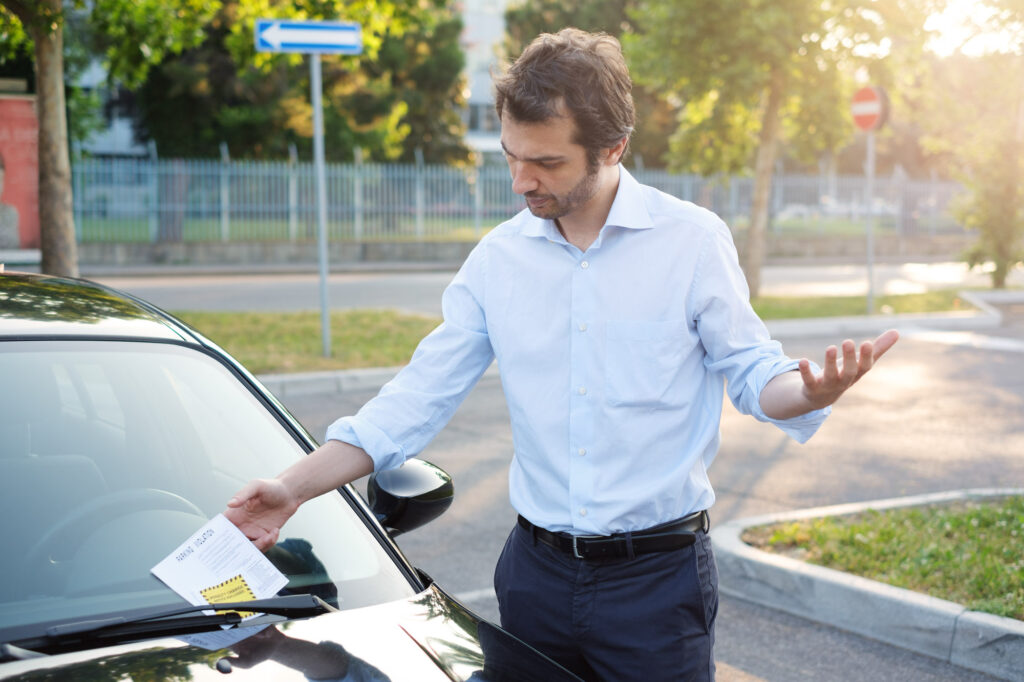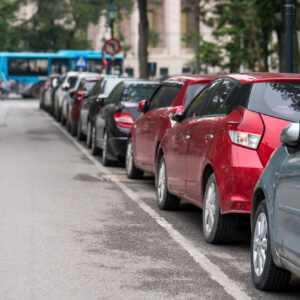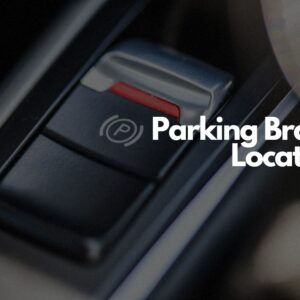Minor infractions may result in consequences that can escalate and transform a slight oversight into a financial or legal burden over time. Things like an unpaid parking ticket may appear trivial today, but if they accumulate and remain neglected, you may have to deal with serious repercussions down the road.
Consequences of Unpaid Parking Tickets
Some consequences of not paying your parking tickets include having to pay fines, getting your vehicle towed, getting your registration held, being required to appear in court, and getting your driver’s license suspended. This may even affect your credit score negatively.

Fines
There is a specified timeframe in which you should pay parking tickets. If you don’t meet the deadline, you could be staring at double or even triple the original fee.
The amount of the fine will depend on the state you’re in. In California, there is an additional $27 fine if you miss the due date and possibly a $3 Department of Motor Vehicles (DMV) fee if they place a hold on your vehicle registration.
It’s best to take care of the ticket as soon as you get it. There should be information on the ticket itself on how to pay the fine. You can also visit the official website of your city/county transportation department to get more information about the process.
Booted/Towed Vehicle
There are different reasons for your car to get booted or towed. One includes accumulating parking tickets or other traffic violations you haven’t paid off yet.
California requires owners of booted cars to pay their parking tickets on top of a $150 removal fee.
Your vehicle may be towed if you have over $350 worth of unpaid tickets. If your vehicle is towed, contact the police department to find out where your vehicle was taken. You may need to pay the fees and get a vehicle release form before going to the impound lot to get your vehicle back.
Vehicle Registration Hold or Suspension
Since the DMV isn’t involved in collecting the fines for these tickets, some may be unaware that failing to settle them can keep you from getting your vehicle registration renewed.
Most cities will get in touch with the DMV to alert them of these types of violations and neglect. In turn, the DMV may refuse to renew your registration or issue a suspension until the tickets are settled.
Court Appearances
Certain places, such as Memphis, Tennessee, have court date appearances that indicate when you need to show up in court if you fail to pay the fine within 15 days. The fine may increase after missing the deadline, making the whole thing an ordeal.
As such, it’s recommended to pay for the ticket during the allocated period. The time frame may differ per state. For example, in California, you must pay within 21 days of the date of the citation or 14 days from the first overdue notice.

Driver’s License Suspension
Accumulating unpaid parking tickets or other fines may lead the DMV to suspend your driver’s license. The exact amount of tickets needed to trigger the suspension varies per state.
You’ll have to wait for the end of the suspension period before applying for reinstatement. Then you’ll have to pay fees and provide proof of car insurance.
Lower Credit Score
A person’s credit score is a prediction of their credit behavior. This means it estimates how likely you are to pay back loans based on previous activities/reports. As such, any debt that shows up on your account is bad for your credit score, including unpaid fines.
If you plan on getting a loan for a house, something as simple as failing to pay off your parking tickets may affect your chances of getting good rates. While credit bureaus typically don’t include public record information on credit reports, unpaid tickets that are over $100 can be endorsed to a debt collection agency. Debt collection accounts may remain on your credit report for seven years.
Parking Tickets vs. Traffic Tickets
The only difference between parking tickets and traffic tickets is you get the former when your vehicle is stopped and you violate a parking rule. The most common reason for the infraction is parking in a restricted area.
On the other hand, traffic tickets are issued when you commit a violation while your vehicle is in motion. Common examples include speeding, running a red light, making an illegal U-turn, etc.
What Constitutes Illegal Parking?
An illegally parked vehicle refers to one that is parked on public streets or prohibited areas. If that’s too vague, here are some areas where parking is not allowed:
- Highways
- Intersections
- Pedestrian crosswalks/sidewalks
- Driveways
- In front of fire hydrants
- In an underpass or bridge
- Spot reserved for the disabled
- Next to another vehicle (double parking)
- In front of a “No Parking” sign
- In a space for fueling zero-emission vehicles (if you’re not driving one)
Any information provided on this Website is for informational purposes only and is not intended to replace consultation with a professional mechanic. The accuracy and timeliness of the information may change from the time of publication.















